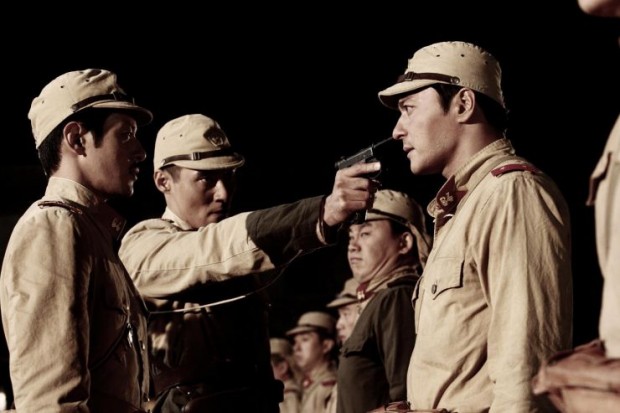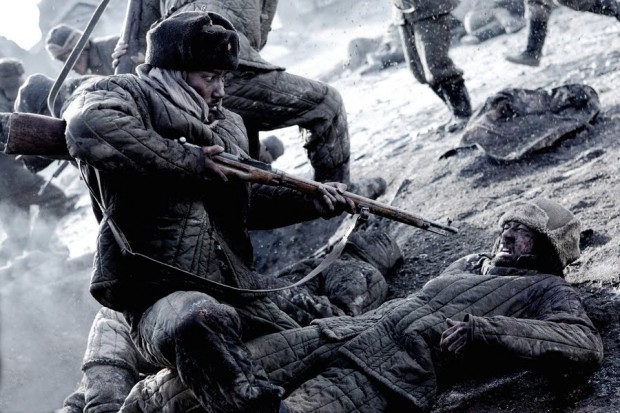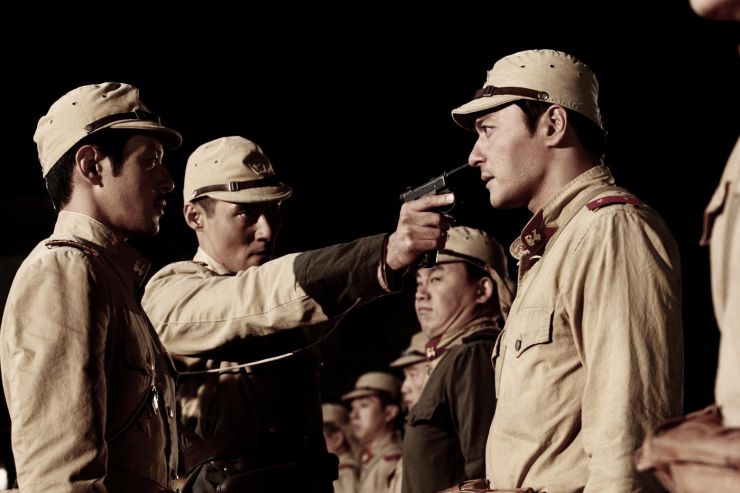
Some have called Kang Je-gyu the South Korean Steven Spielberg. Perhaps it is his love for large scale films, particularly war movies, that created the comparison. Certainly, his latest film, My Way, is set during a key war period in Korean and Japanese history right before World War II. Je-gyu made his way all the way to Dallas, Texas to premiere the film as part of the Dallas International Film Festival and I had the chance to sit down with him and a translator. Among the topics was his casting nationalities accurately, why he took on such a large scale film after a long hiatus, and much more.
 Is this your first time in the U.S. and the first time in Texas?
Is this your first time in the U.S. and the first time in Texas?
Kang Je-gyu: I’ve been fortunate enough to have two of my past films, Shiri and Taegukgi, both release here in the U.S. so I visited then. But this is my first time in Texas.
I noticed that you had both Koreans and Japanese in this film. How important was it to cast nationalities accurately to create this film?
There’s a lot of cases where in a Korean film, if there’s a Chinese character, it will be played by a Korean actor who speaks Chinese. But especially because this film is based on a true story, I really wanted to capture this journey that was undertaken and the different people that these characters met. The German soldiers, the Russian soldiers, the Chinese, the Japanese. So making it as real as possible was very important to me. For example, in a lot of U.S. films you will have a Korean character but it will often be played by, say, a Chinese actor, and it’s a very small point but as a Korean you can hear when they speak and it takes you out of the film. It’s a small point but I really wanted this film to travel to Germany and have Germans really accept it. For everybody to really see the film for what it is.
Was there hesitation to make a film of this scale after you’ve taken such a long break? Or did that benefit?
I will say that after I made Taegukgi I wanted the opportunity to present a film to a larger audience as well. So I had come to the U.S. to develop a film here. And for just some reasons it didn’t come to pass. But definitely with doing a film such as My Way, if I could boil it down to one word, the idea of ‘expansion’ was in my mind. How could I get this out to as many people as possible. And My Way was probably the best vehicle to do that with. Having said that, now that My Way is done, my feelings have evolved again and I want to do something that brings me joy and maybe is something that is a little bit easier for everyone to be involved with.

Korean cinema has really taken off these last few years, especially in the U.S. I think there’s growing appreciation among critics and select audiences. Who do you see as the top level directors in Korean films?
Everybody except me. [All laughs] In the last four or five years there has been this growth of talented younger directors. And if I say even in the early 2000’s, there were a lot of new films coming out but everything was notable for the fact that it was always a new director. Their first work, and that was getting a lot of notice. But over the course of time we’ve seen people growing into their filmography and having a chance to come back with their second, third, and fourth films. And that really, I think, speaks to the stabilization and growth of the film industry itself. And the talent pool is growing and it’s a great thing for the industry.

There’s a lot of quick cuts in the action sequences throughout the film. What was the decision to go with that instead of maybe longer, stable cuts?
Definitely the quick cuts versus long cuts is a choice. In terms of how one’s going to talk about war and the heat of battle itself. And certainly, when you have the long shots, the perspective of the director, I think, is allowing people to take a detailed look and really see all that is happening on screen, and that’s a really valid perspective as well. The decision making that I took with going for a quick take was in order to really capture the sense of the chaos of war. The splintering of reality. The complete absence of rationality. You’re not able to think clearly or act clearly. You don’t know what’s going on and I really felt that that explosive nature of the camera going back and forth, a confusion, would capture what I was talking about. And the message that I wanted to say about war.
My Way is now in limited release.

